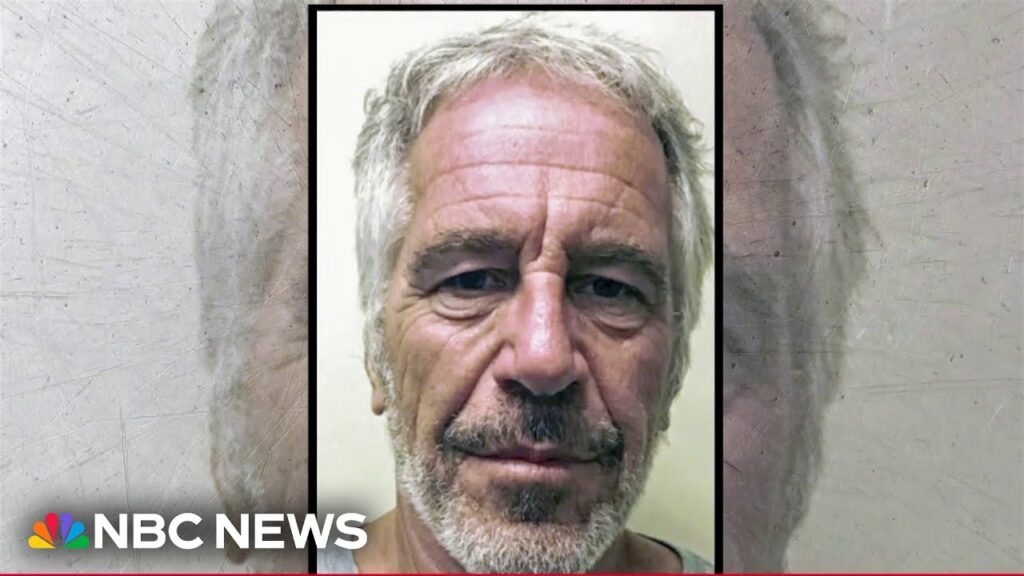In a striking and politically charged move, former President Donald Trump has publicly directed the United States Department of Justice (DOJ) to initiate a formal investigation into the ties between the late financier Jeffrey Epstein and prominent Democratic figures and institutions. This development comes after a release of thousands of documents from Epstein’s estate that has renewed attention on his web of relationships and prompted sharp partisan claims and counter-claims. Democracy Docket+3Reuters+3ABC News+3
The move raises serious questions about the independence of the Justice Department, the motivation behind the probe, and what it means for Trump’s own connection to the Epstein saga. Over the next few minutes, we’ll dig into what Trump has asked for, how key players have responded, the broader context of Epstein’s network, and what the possible implications are for U.S. politics and justice.
What exactly did Trump ask for?
On November 14, 2025, Trump publicly stated he would be asking the DOJ, along with the Federal Bureau of Investigation (FBI) and his then-Attorney General Pam Bondi, to investigate Epstein’s relationships with Democratic heavyweights such as former President Bill Clinton, former Treasury Secretary Larry Summers, venture capitalist and donor Reid Hoffman, and also institutions like JPMorgan Chase & Co.. Business Insider+2Reuters+2
Bondi responded fairly quickly, announcing that she had instructed U.S. Attorney Jay Clayton in the Southern District of New York to lead the investigation “with urgency and integrity.” AP News
Why now? What triggered this move?
The impetus appears to be the recent publication of thousands of pages of emails and documents from Epstein’s estate, some of which reference Trump directly and reference Epstein’s connections to many elite figures. Reuters+1 Trump has cast the development as a political stratagem by Democrats, branding the disclosure “the Epstein Hoax” and insisting the arrows point at them, not at him. Business Insider+1
By calling for this investigation, Trump is asserting a narrative that Epstein was chiefly a problem for Democrats and shifting scrutiny away from his own past ties to Epstein — ties that have previously been documented. Wikipedia+1

What are the controversies around the move?
First, legal experts warn that a sitting or former president directing DOJ investigations against specific individuals — many of whom are political opponents — runs the risk of undermining the principle of non-partisan justice, potentially leading to claims of “vindictive prosecution.” Reuters+1
Second, although Epstein was a convicted sex-offender and trafficker, none of the Democratic figures named by Trump (Clinton, Summers, Hoffman) have been credibly charged with Epstein-related crimes. The previously released DOJ/FBI memo concluded that no credible evidence supported investigations of uncharged third parties. ABC News
Third, some see this as deflection: Trump’s move is seen by critics as distracting from his own past associations with Epstein and from mounting congressional pressure for full disclosure of Epstein-related files. The Guardian+1
What does this mean for U.S. politics and the justice system?
If the investigation proceeds, it may deepen partisan divides. For Trump and his supporters, it serves as a “counter-attack” narrative: Epstein was not just about Trump or Republicans, but is now framed as a problem for Democrats. For Democrats and critics, the move might appear as weaponising the DOJ for partisan ends.
From an institutional perspective, the shift raises questions about the independence of the Justice Department and whether the rule-of-law norms are being compromised when investigations are launched at the explicit behest of political actors. Some commentators believe that such actions erode public trust in law enforcement’s impartiality. Democracy Docket+1
In terms of transparency, the wave of document disclosures around Epstein’s estate, and the legislation such as the Epstein Files Transparency Act (which would require all DOJ files on Epstein to be released) add another layer of complexity. Wikipedia+1
What to watch next?
Key developments to monitor include:
- Whether the investigation results in any formal charges or whether it continues as a fact-finding mission.
- How the named individuals and institutions respond — will they issue statements, seek to block investigations, or cooperate?
- Whether the DOJ sets clear guardrails about how the investigation proceeds, to avoid legal vulnerabilities around politically motivated prosecutions.
- How Congress reacts — are there oversight hearings, demands for release of documents, or legislative pushbacks?
- What impact this has on public opinion and on the broader justice and political ecosystem, especially ahead of future election cycles.
In conclusion
The decision by Donald Trump to order a DOJ probe into Jeffrey Epstein’s links to Democratic figures and prominent institutions represents a dramatic escalation in the Epstein saga — one that shifts the spotlight and raises major questions about justice, transparency and presidential power. At its core, this is not merely about one man or one investigation. It’s about how investigations get initiated, how the powerful engage with accountability, and how political narratives shape institutional responses.
Whether this investigation will lead to meaningful outcomes — or whether it will be seen as a politically motivated move — remains to be seen. What’s certain is that the Epstein files, and the political currents around them, are far from closed. If you found this analysis useful, please like, subscribe, and hit the notification bell to stay updated on this developing story. Leave a comment below: Do you believe this investigation is legitimate or political? We’d love to hear your thoughts.
Stay informed, stay engaged — thanks for watching.


